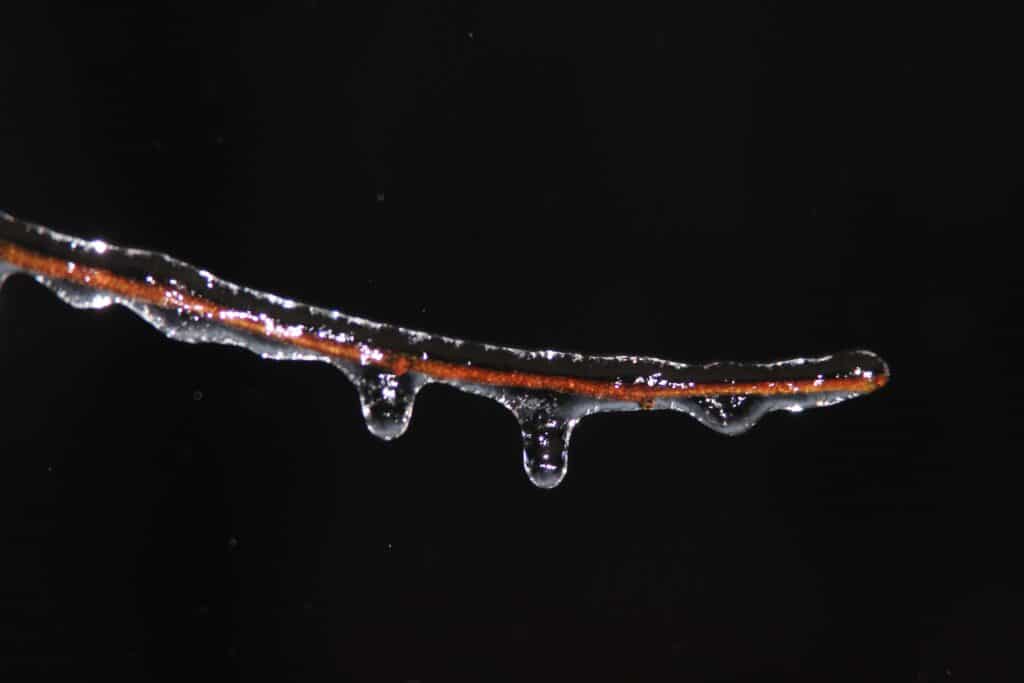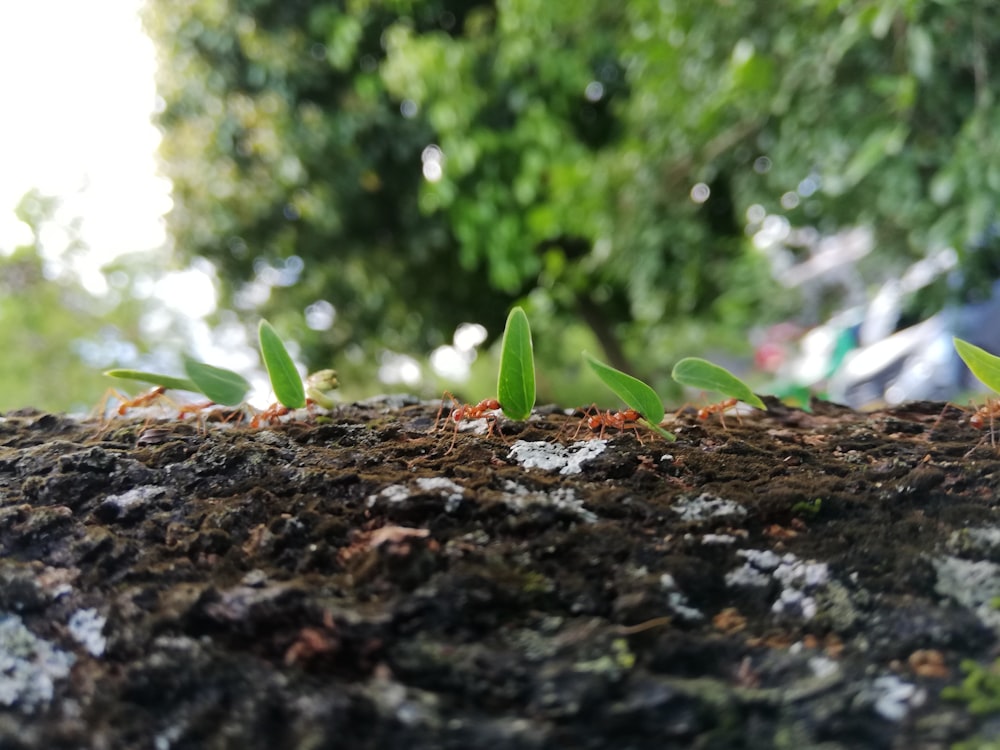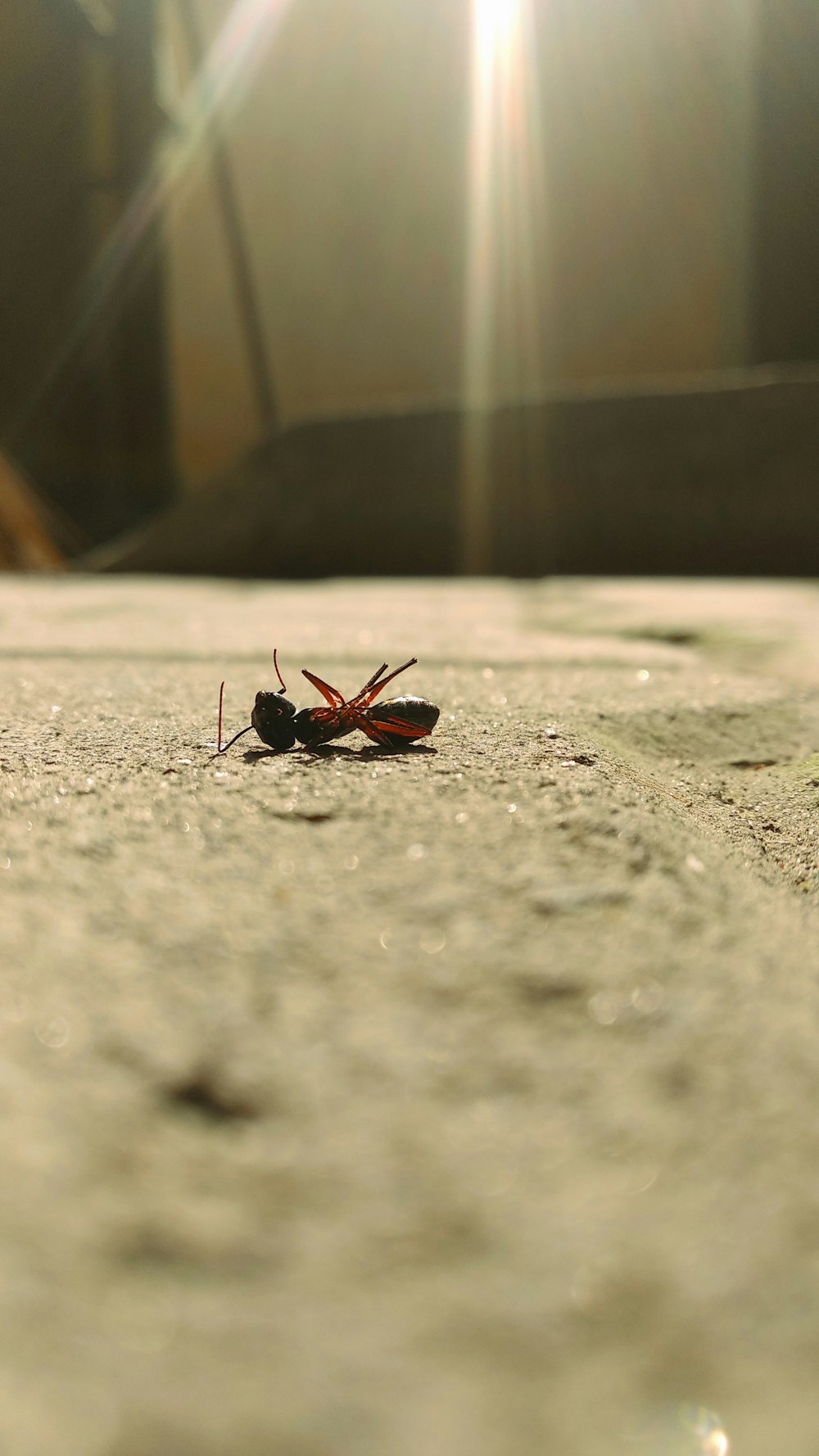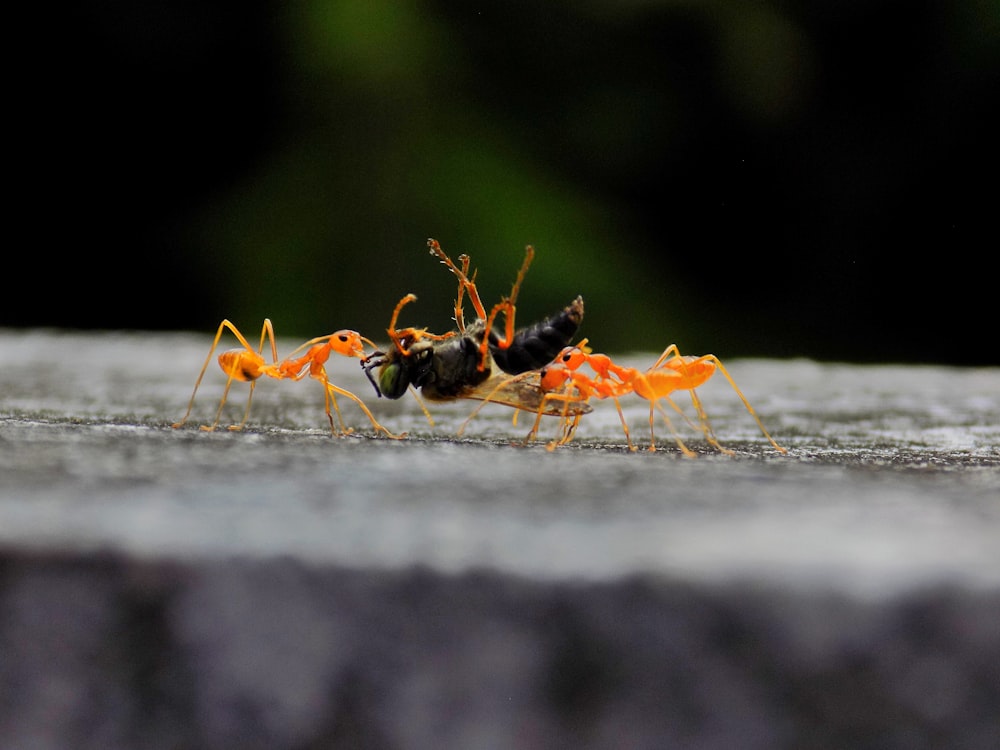In the spring, summer, and fall, ants can pretty much be found anywhere you look outside.
Ants are everywhere.
You may see a few on the sidewalk or a large group crashing a local picnic in the park.
You can expect to see ants at any time…except in the winter.
Ant colonies seem to vanish for a few months after the temperature drops, not seen again until the weather warms back up.
Where do all of these ants go, since they all (obviously) don’t die?
Can Ants Freeze To Death?
While ants could possibly freeze to death, and it has been seen in lab experiments (below -20 degrees), it has to be very cold for a long period of time (longer than a day) for an ant to leave its state of hibernation and freeze to death.
Can Ants Survive After Putting Them in The Freezer?
Ants can endure long periods in the freezer.
Ants frequently survive and on rare occasions flourish in cool refrigerators.
This is because of the constant temperatures ranging from 3-5 degrees Celsius (37.4-41 °F).
Ants prefer a warm atmosphere, as their breeding increases in warmer temperatures.
However, if there is enough food, they may still live in the freezing zone by hibernating or going into diapause.
Since a freezer’s temperature never rises, prolonged exposure inside the freezer is fatal for ants.
A quick freeze for ants (or any cold-blooded creature) poses little to no risk.
Cooling Down Ants Before Moving Them
Freezing/cooling an ant colony is a common strategy among ant-keepers attempting to move their colonies.
Since freezers don’t pose too much risk to a colony, an ant keeper will place their colony into the freezer/cooler temps to slow the colony down.
This will make it easier for the keeper to move the ants, as they will not be nearly as active (due to them being cold-blooded).
What is An Ants Favorite Season?
Ants emerge from hibernation and become extremely active when spring arrives.
When the temperature warms up, ants only have one thought in their heads: food.
For a queen ant, the summer or spring season is the best time for mating and building an ant colony.
The more ants, the better.
This is because there will be a lot to work on the ground to prepare the colony for when they hide away and hibernate during the winter.
Ant colonies, in general, are able to thrive because they are very food-conservative.
When the warm weather comes in, they work hand in hand to hunt and save as much food as possible.
How Ants Prepare For Winter (During Summer and Fall)
Ants are both magical and mystical.
How they handle the preparation for winter differs for each ant, but most ants will gather a plethora of resources and build huge nests.
For example, the wood ant has some unique traits.
The wood ants usually collect different items like twigs, leaves, tree bark, needles, and other fragments of plant life strewn across the forest floor.
They bring this material back to their colony to be used by the hundreds of thousands of ants to build their nest.
These nests may appear chaotic from the outside, however, they are tightly orchestrated and each piece is moving exactly where it’s supposed to be.
Do Ants Die During The Winter Season?
Ants are seriously affected by temperature fluctuations since they are cold-blooded/exothermic.
Due to this, many ant species will typically congregate in an area that retains heat, huddle together, and go into diapause, a reduced metabolic state similar to hibernation.
Ants often withdraw back to their colonies to preserve heat when the temperature drops below 75 degrees Fahrenheit.
With that being said, below we go in-depth about some of the most famous ants and how they each survive during the cold winter months.
How Do Worker Ants Survive During The Winter Months?
As winter approaches, the worker ants work diligently to close the entrance of their nest.
The worker ants movements slow down, and their body temperature drops sharply.
In response, ants go for warm locations, such as deep in the dirt, beneath boulders, or under tree bark during these cold months.
Once finding a location, the ants huddle together. Ants retain body heat by gathering in groups and protecting the queen.
This is important, as the queen ant is the source of life for their whole colony.
Since they hibernate as a group, ant traffic in the colony slows down and briefly stops during this period.
The worker ants will quickly get back to work as the weather warms up, recreating a pathway to the outdoors by opening up the nest.
How Can Carpenter Ants Survive During The Winter Months?
Carpenter ants will also go into the low-energy diapause condition, but these ants in particular have additional mechanisms for surviving the cold.
Carpenter ants naturally build their colonies in damp or rotting wood – this serves them well in the cold winter months.
This wood is frequently found underground in rotting stumps and decaying root systems.
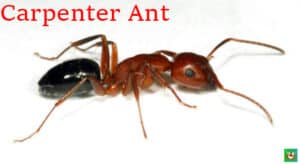
These locations have the insulation required to survive until the temperatures rise again, usually thanks to their underground position and snow covering.
Additionally, carpenter ants may go the entire winter without eating.
Carpenter ants will shut themselves within their nests in the wild and go into diapause until the temperature rises again.
Without feeding, they might remain in this condition for months.
Like most ants, they use the carbs, lipids, and proteins stored in their bodies from all the overeating they did in the summer and fall.
They slowly use this energy while they are in this low-energy condition during the cold winter months.
Do Carpenter Ants Need to Hibernate?
If you are keeping these ants as pets, these ants never have to worry about the cold in an artificial building, especially if the structure is heated.
While we suggest that you allow any new colony to hibernate the first year, after that, you can get away with not letting your carpenter ants hibernate.
Internal heat keeps these insects that tunnel through the wood as warm as a bug in a wall.
How do Sugar Ants Survive During The Winter Months?
During the cold season, you will see sugar ants crawling all over your house, especially in your kitchen.
Sugar ants are little black ants that will swarm anything delectable in their path, turning your counters into small battlegrounds filled with marching armies.
Sugar ants love when sweet containers are left unchecked.
If you expected them to disappear during the winter, you’re in for some bad news.
I hate to break the news to you, but that may not be the case for the sugar ants.
Because sugar ants are a special kind of soil ant, their nests are built underground.
These ants are incredibly nomadic and are always looking for a new place to start a nest.
If able, sugar ants will skip hibernation by moving their nests indoors. They do this to take advantage of the warm cozy insulation.
Normally, this will be obvious by an increased number of ants running around your house in the winter months.
However, if these ants aren’t able to find a satellite nest, these ants will hibernate just like the rest of the species.
Can Ants Sense Death?
It’s shocking, when an ant dies – the colony will respond as if it weren’t there.
The other ants are unaware of one ant’s death and studies have shown they will not even become aware until three days later.
If you’re wondering why it takes nearly three days for ants to become aware of their fellow ants dying, it’s because at around the three-day point oleic acid is released.
This is the classic stench of the dead ant, which alerts the others around it that an ant has passed. Once others sense this smell, they will move the corpse.
The corpse of the ants will be picked up by another ant and thrown into the midden.
The midden will act as the ant colonies’ graveyard. They use this as an outside area to dump rubbish and other throwaway items from the colony.
What is an Ant Midden?
The midden serves as a cemetery and a sort of garbage. Many times, insects pass away due to illnesses or other diseases.
The ants move waste and dead bodies here to avoid contaminating themselves or their queen, as the midden will act as a safe place away from the ant nest.
Do Ants Carry Their Dead?
Once the oleic acid has been released, the ants realize they need to move the body.
This is where traditionally people have seen ants carrying their dead.
This is not a religious thing, the ants are trying to keep the colony and queen safe by keeping the area close to the queen free of contaminants.
Ants, like humans, keep their homes clean and tidy. They will transport their excrement outside of their nest and bury it in a mound known as a midden.
If you ever see some ants carrying each other, there isn’t a ceremony going on.
Just a quick trip to the midden.
Some Related Ant Articles
Ants are crazy animals.
With this fantastic animal, it’s no wonder we get so many emails asking a ton of different questions.
We have some related articles that answer some of the questions, listed below:
How Do Ants Get Ready For Winter?
Ants are experts at preparing for winter, ensuring they stay alive over the winter by preparing night and day during summer and fall.
Ants’ body temperatures plummet in the presence of the chilly air, which (due to being cold-blooded) causes them to travel a bit more slowly.
In response to this, ants will seek out warmer locations, such as deep in the dirt, beneath boulders, or under fallen tree bark to stay warm.
Ants retain body heat by gathering in groups and protecting the queen, the source of life for their whole colony, while they hibernate as a group.
Ant traffic slows and their body temperature drops sharply and movement in the colony completely stops during this period. Finally, the entrance to their nests closes.
After this, the ants will quickly get busy. The weather warms up, and the ants will create a pathway to the outdoors.
During this season, they get their nutrition from various items, such as nectar, seeds, and plants.
Their diet must contain protein-rich foods like meat and insect carcasses to produce more eggs. They feed these directly to the queen ant.
Ants change to eating carbs in the late summer so they can store up and use them as fuel in the winter.
This aids in their weight increase before the season, allowing them to withstand the severe weather and lack of food.
Most ants follow this process of packing on fat to stay warm in the cold winter months.
Those not lucky enough to find safety within the huddle must face the elements outside.
If this happens, the ants will have to fight off other bugs, termites, and flies to stay alive, with limited movement.
Conclusion & Final Thoughts
Contrary to popular belief, ants will continue their regular operations even in a mild winter.
Winter doesn’t imply that all ants have vanished (just because you can’t see them doesn’t mean they aren’t there).
It’s crucial to remember that most ant species aren’t blatant foragers eager to put their lives in danger in plain sight.
Ants may be tiny but are intelligent.
As a result, you won’t see most ant species moving around your house or on the ground looking for food.
Instead, they will find a nice shelter in the background, remaining elusive, out of view, and eventually out of our minds to prepare themselves for the cold season by stealing all of your favorite snacks!
